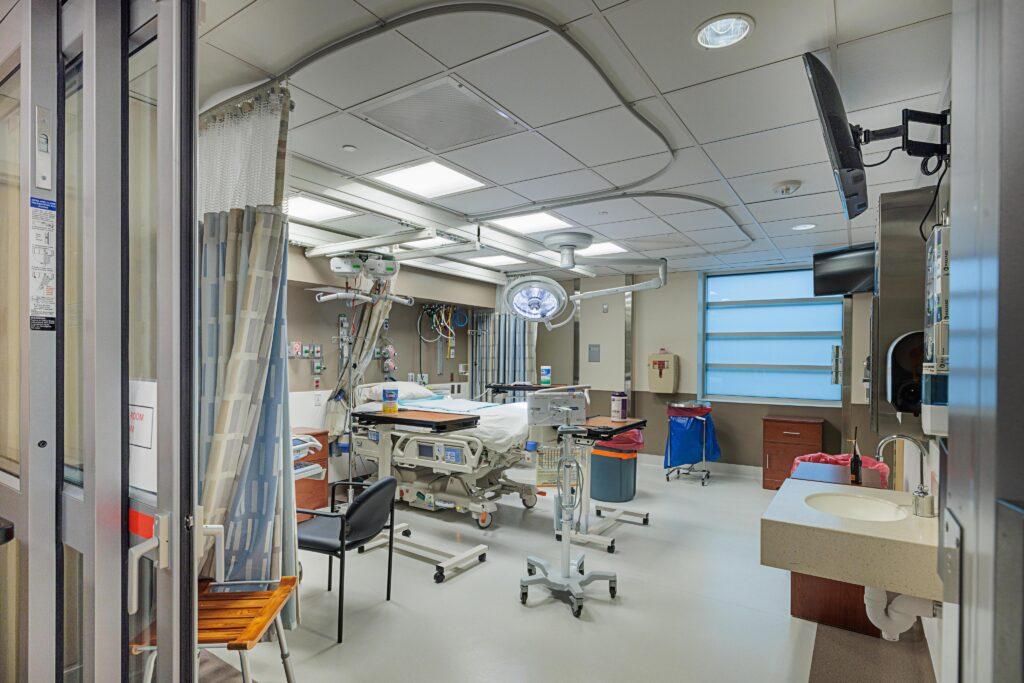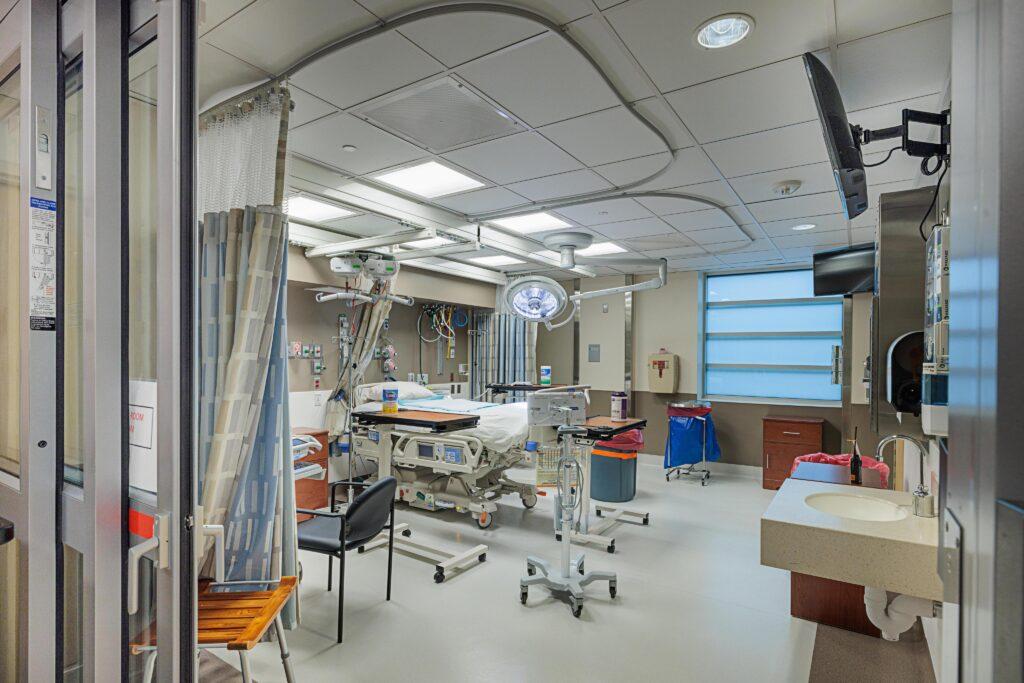The MedStar Washington Hospital Center has opened a new Biocontainment Unit (BCU) designed to prevent highly infectious diseases from spreading.
The unit, which MedStar Health announced Jan. 19, is equipped to handle patients with severe respiratory syndromes and highly infectious diseases including Ebola, cholera and yellow fever. It will feature 10 beds for respiratory isolation and two rooms for biocontainment that feature negative air pressure to prevent the spread of infectious particles, according to MedStar’s press release. The 6,800-square-foot unit also includes two special pathogen rooms where operations, labor and delivery can take place.
Vice President and Chief Public Health Officer at Georgetown University Dr. Ranit Mishori (MED ’02) said the setup of the new unit will be beneficial for both patients and health care workers.
“The unique features of MedStar’s new biocontainment unit will ensure those who work there can have all the resources they need to manage these serious diseases, and that those who may have to be treated there will have access to high-quality care in a setting that promotes best infection-control practices,” Mishori wrote to The Hoya.
Mishori said being proactive enough to prepare for infectious outbreaks that may impact the community is a critical component of public health, especially since the D.C. region is an international hub.
“From a public health perspective, I hope we never see cholera, plague, Ebola, or any of the other special pathogens in our community, but we certainly have to worry about them and plan ahead,” Mishori told The Hoya. “The DC Region is often among the first to see special pathogens due to our status as an international hub of diplomacy, education, and global travel. These special pathogens represent both a clinical, as well as a public health, concern.”
When clinicians are not using the new unit for patients with infectious diseases, they can house patients who require extended care but do not qualify for inpatient admission, according to the MedStar hospital’s press release.
Shane Kappler, the medical director of the new BCU, said the idea for the unit originated in 2014 following the spread of Ebola in the United States, which required a significant amount of hospital space to contain patients.
“We knew that we needed to find a new way to provide the needed resources to care for these patients with special pathogens,” Kappler said in MedStar Health’s Jan. 19 press release.

In October 2022, the Department of Health and Human Services designated MedStar Washington Hospital as one of 13 Regional Emerging Special Pathogen Treatment Centers (RESPTCs) in the nation, awarding the hospital a $3 million grant to help fund the unit.
Craig DeAtley, the director of Emergency Preparedness and the interim program director who will manage the BCU and grant funds at MedStar Washington Hospital Center, said the grant will fund better equipment that will help ensure hospital workers are better protected from infectious diseases.
“The $3 million ASPR grant provides funding to expand the volume and type of equipment we need to take care of more patients and supports our partnership with the other 12 regional special pathogens treatment centers,” DeAtley said in the Jan. 19 release.
John Kraemer, an associate professor in Georgetown University’s department of health management and policy, said the unit will make everyone safer, not just clinicians.
“Washington Hospital Center’s biocontainment unit is a very good development both to protect clinicians and the broader community,” Kraemer wrote to The Hoya.
According to Mishori, anticipating health crises is essential.
“Preparedness is a key element in Public Health and having this biocontainment unit, knowing that it exists right here in the District, is very reassuring,” Mishori said.






















